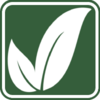| 500Foods shared this story from |
Agronomy, Vol. 10, Pages 1637: The Influence of Trichoderma harzianum Rifai T-22 and Other Biostimulants on Rhizosphere Beneficial Microorganisms of Carrot
Agronomy doi: 10.3390/agronomy10111637
Authors: Patkowska Mielniczuk Jamiołkowska Skwaryło-Bednarz Błażewicz-Woźniak
The principles of good agricultural and horticultural practice, which consider both giving environmental protection and high yielding of plants, require modern cultivation methods. Modern cultivation of horticultural plants uses, for example, cover crops, living mulches, plant growth-promoting microorganisms (PGPMs), plant growth regulators (PGRs) and other biostimulants protecting the soil against degradation and plants against phytopathogens and stress. The purpose of field and laboratory studies was to determine the effect of Trianum P (containing Trichoderma harzianum Rifai T-22 spores), Beta-Chikol (a.s.—chitosan), Timorex Gold 24 EC (based on tea tree oil) and fungicide Zaprawa Nasienna T 75 DS/WS (a.s.—tiuram 75%) on the health of carrot (Daucus carota L.) plants and the microorganism population in the rhizosphere of this plant. Moreover, the antagonistic effect of rhizosphere fungi on selected carrot fungal pathogens was determined. Laboratory mycological analysis allowed one to determine the qualitative and quantitative composition of fungi colonizing the underground parts of carrot plants. In addition, the total population of fungi and bacteria was determined (including Bacillus sp. and Pseudomonas sp.) based on the microbiological analysis of the rhizosphere soil. The application of the plant growth-promoting fungus (Trichoderma harzianum T-22), chitosan and tea tree oil positively influenced the growth, development and health status of carrot plants. T. harzianum T-22, chitosan and fungicide most effectively protected carrots against infection by soil-borne fungi from the genus Alternaria, Fusarium, Haematonectria, Sclerotinia and Rhizoctonia. The rhizosphere population of Bacillus sp. and Pseudomonas sp. in the treatments with Trianum P or Zaprawa Nasienna T 75 DS/WS was bigger than in the other experimental treatments. A reverse relationship was observed in the population of rhizosphere fungi. T. harzianum T-22, chitosan and tea tree oil promoted the growth of antagonistic fungi (Albifimbria sp., Clonostachys sp., Penicillium sp., Talaromyces sp. and Trichoderma sp.) in the carrot rhizosphere. Antagonistic activity of these fungi towards Alternaria dauci, Alternaria radicina, Sclerotinia sclerotiorum and Rhizoctonia solani was higher after the application of the preparations compared to control. Consequently, Trianum P, Beta-Chikol and Timorex Gold 24 EC can be recommended as plant biostimulants in ecological agricultural production, including Daucus carota cultivation.

